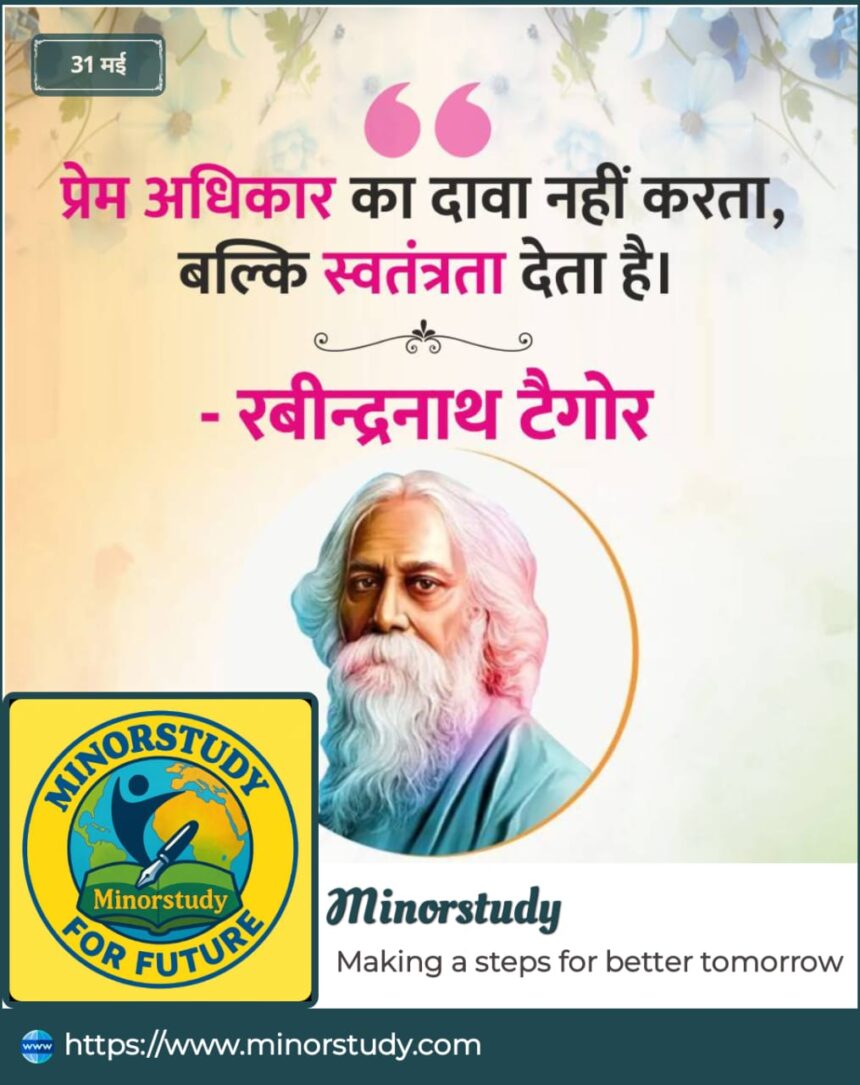- Introduction
- History of Rabindranath Tagore
- Timeline of Major Events
- Important Facts About Tagore
- FAQs
- 1. Why is Rabindranath Tagore important?
- 2. What are Tagore’s most famous works?
- 3. Did Tagore participate in India’s independence movement?
- 4. What is Visva-Bharati University?
- 5. How does Tagore’s work impact us today?
- Literary and Cultural Significance
- Daily Life Impact
- 1. Cultivating Inner Peace and Reflection
- 2. Promoting Universal Brotherhood
- 3. Inspiring Creativity
- 4. Education as Freedom
- Observance and Cultural Celebrations
- Wishing and Reflection
- Important Points Summary
- Conclusion: Why Rabindranath Tagore’s Legacy Endures
Rabindranath Tagore: History, Significance, and Life Lessons That Inspire Humanity
Introduction
Rabindranath Tagore, a towering figure in Indian literature and culture, is celebrated worldwide as a poet, philosopher, educator, and visionary. As the first non-European Nobel laureate in Literature (1913), Tagore’s work transcended boundaries and continues to resonate deeply with readers across generations. His contributions not only shaped modern Indian thought but also offered profound insights into human values, spirituality, and creativity.
This article explores the history, facts, timeline, significance, and daily life impacts of Rabindranath Tagore’s legacy, providing a warm, human-centered perspective.
History of Rabindranath Tagore
Born on May 7, 1861, in Calcutta (now Kolkata), Rabindranath Tagore hailed from a distinguished Bengali Brahmin family immersed in culture and literature. His father, Debendranath Tagore, was a leading figure in the Brahmo Samaj reform movement, influencing Rabindranath’s early spiritual and intellectual development.
Tagore was largely homeschooled, encouraged to explore poetry, music, and philosophy from a young age. By his teens, he had begun writing poems and stories that reflected his sensitive and imaginative mind.
His travels abroad in the early 1900s broadened his worldview, helping him connect Eastern and Western philosophies. Tagore founded Visva-Bharati University in Santiniketan, emphasizing holistic education rooted in nature, creativity, and humanism.
Timeline of Major Events
1861: Born in Calcutta.
1878: Published first collection of poems, Kabi Kahini.
1913: Awarded the Nobel Prize in Literature for Gitanjali (Song Offerings).
1921: Founded Visva-Bharati University at Santiniketan.
1930s: Actively spoke against colonial rule but advocated for peaceful resistance and human unity.
1941: Passed away on August 7, leaving a vast literary and cultural legacy.
Important Facts About Tagore
First non-European Nobel laureate in Literature.
Wrote in Bengali and translated many works into English himself.
Composed national anthems for India (Jana Gana Mana) and Bangladesh (Amar Shonar Bangla).
A prolific composer of over 2,000 songs, known as Rabindra Sangeet.
Emphasized universal humanism and harmony beyond nationality or religion.
FAQs
1. Why is Rabindranath Tagore important?
He revolutionized Indian literature and culture, blending tradition with modernity and inspiring humanistic values globally.
2. What are Tagore’s most famous works?
Gitanjali, Gora, Ghare-Baire (The Home and the World), and his poetry and songs.
3. Did Tagore participate in India’s independence movement?
He supported freedom but believed in non-violent, inclusive resistance, sometimes critiquing aggressive nationalism.
4. What is Visva-Bharati University?
An institution founded by Tagore promoting global cultural exchange, creative learning, and education close to nature.
5. How does Tagore’s work impact us today?
His messages of peace, unity, creativity, and self-reflection remain deeply relevant in a divided world.
Literary and Cultural Significance
Rabindranath Tagore’s literary genius lies in his ability to connect the personal and the universal. His poetry and prose evoke deep emotions, spiritual longing, and an abiding love for humanity and nature.
His influence expanded beyond literature into education, music, and art. Tagore’s educational philosophy promoted freedom, creativity, and respect for all cultures—a vision that is increasingly appreciated worldwide.
His songs, Rabindra Sangeet, continue to inspire millions with their soulful melodies and profound lyrics.
Daily Life Impact
1. Cultivating Inner Peace and Reflection
Tagore’s writings encourage us to pause and look inward, fostering mindfulness and self-awareness in everyday life.
2. Promoting Universal Brotherhood
In times of conflict and division, Tagore’s belief in human unity reminds us to embrace diversity with love and respect.
3. Inspiring Creativity
His encouragement of artistic expression motivates us to find beauty in the ordinary and live life as a continuous creation.
4. Education as Freedom
Tagore’s vision challenges us to rethink education as a liberating force that nurtures the whole person, not just academic achievement.
Observance and Cultural Celebrations
Rabindranath Tagore’s birth anniversary, Rabindra Jayanti (May 7), is celebrated widely across India and Bangladesh with cultural programs featuring his poetry, songs, and plays.
Visva-Bharati University hosts special events reflecting his ideals. Many schools and colleges also organize competitions and recitations to keep his legacy alive.
Wishing and Reflection
May the luminous words of Rabindranath Tagore illuminate your path with wisdom, creativity, and compassion. Let his spirit inspire you to see the world with empathy and to live a life full of meaning and harmony.
Important Points Summary
Born in 1861, Nobel laureate in 1913.
A literary giant in poetry, music, and prose.
Founded Visva-Bharati University for holistic education.
Composed India’s national anthem.
Advocated universal humanism, peace, and creativity.
Conclusion: Why Rabindranath Tagore’s Legacy Endures
Rabindranath Tagore’s life and work are a testament to the power of art, education, and human values to transform society. At a time when the world is fragmented by conflict and uncertainty, Tagore’s vision of harmony, peace, and universal love is more important than ever.
Incorporating his teachings into our daily lives can nurture empathy, creativity, and resilience, helping us build a better, more compassionate world.
Whether through his poetry, music, or philosophy, Tagore continues to inspire millions, reminding us that true progress begins within the heart.








